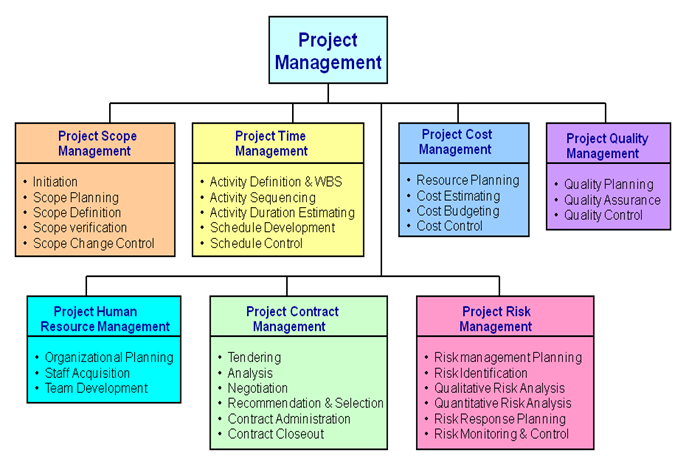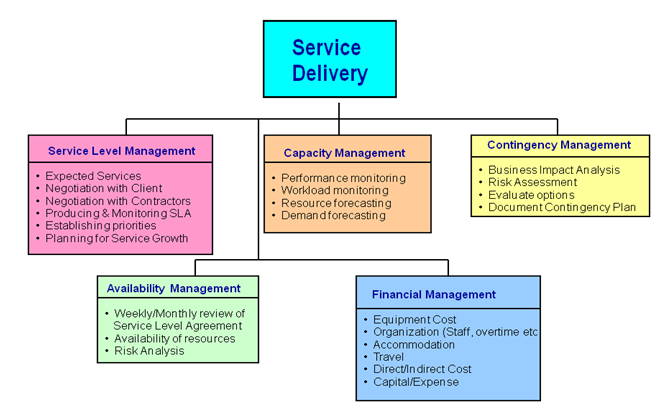Project Management Consultancy Services ( PMC ) – Construction Services
Project Management Services
- The prime objectives of PMS are:
- To meet specific performance within estimated & approved cost & on Schedule
- To achieve desired outcome; smooth co-ordination of all interdependent agencies is required
- The PMS must take Complete Ownership of the project and must add potential benefit to the Organization
- Make best use of available resources and deliver the best
- Use latest Construction technique & Equipment to minimize the cost and maximize higher ROI (Return on Investment)
- Use Subject Matter Experts available in market during planning stage
- The methodology & processes followed are
- Project Management Practices of Project Management Institute (PMI)
- Infrastructure Service Delivery Management
And other guiding methodologies are:
- TQM (Total Quality Management) for optimum utilization of resources and minimal wastage
- Six Sigma Business Improvement methodology during execution phase to improve Quality
Project Management Services
- The Process & Knowledge areas of PMI incorporated for ���Construction Project Management” are:
- Scope Management
- Time Management
- Cost Management
- HR Management
- Procurement/Vendor Management
- Quality Management
- Risk Management
Monitoring & Control is an ongoing function from the time of project initiation
The Process & Knowledge areas of PMI incorporated for “Construction Project Management” are:
Infrastructure Service Delivery Management (ISDM):
- Engaging external Project Management Services is now a common and established phenomena that help management of project more efficiently and professionally in addition to tremendous Value Addition to Organization
- It can be viewed in many different ways, but certainly NOT as a route to passing on responsibility for Project management.
- The fact PM or other functions are performed by a third party organization does not mean that ultimate management responsibility changes. The method of management may vary, but responsibility will not. In many cases, the quality of the in-house management will actually be more critical in these scenarios.
- It could be argued that the fact that a function is delivered externally requires even more stringent and disciplined management structures than internal delivery. Certainly, there are a significant number of aspects that require close attention and for which the application of ISDM disciplines can bring substantial benefits
The use of ISDM will certainly help ensure a more rigorous and robust arrangement,
which ultimately benefits the client.
Infrastructure Service Delivery Management Framework
Infrastructure Service Delivery Consist of 5 major disciplines:
- Service level Management:
is the primary management of services, ensuring that agreed services are delivered when and where they are supposed to be delivered; in a secure, efficient and cost effective manner.
- Capacity management:
ensures that services are provided at the right time in the right volume at the right price, and ensuring that resources are used in the most efficient manner.
- Contingency Planning:
is the process by which plans are put in place and managed to ensure that Services can recover and continue should a serious incident occur. It is not just about reactive measures, but also about proactive measures – reducing the risk of a disaster in the first instance.
- Availability Planning:
is the practice of identifying levels of Service availability for use in Service Level Reviews. All areas of a
service must be measurable and defined within the Service Level Agreement (SLA). For e.g.
- Agreement statistics – such as what is included within the agreed service.
- Availability – agreed Contractor’s workforce, P&M, documentation, Supervisory, Quality & Support staff
- Financial Management:
Financial Management is the discipline of ensuring service is obtained at the most
effective price (which does not necessarily mean cheapest). Cost are divided into
costing units such as Equipment, Organization (staff, overtime etc) and also into
direct & indirect/Capital & Expense.
Scope of Project Management Services
- Preliminary Stage (Understand the Scope of Work):
- Information sharing & Collection of requirements from client
- Architectural work
- Geo Technical investigation
- Preliminary Design (Architectural, civil, structural & electrical engg.)
- Estimation & Approval
- Freezing of Architectural Requirements & RCC design
- Summary of Deliverables
- Concept design
- Preliminary Design & Drawing
- Design Development drawings
- Drawing for Statutory Approvals
- Construction drawings
- Schedule of Quantities and Technical Specifications
- Interfacing with other consultants engaged by client
- Project Management, Construction Management & Site administration
- Generating weekly/monthly MIS
Scope of Project Management Services
- Planning Stage:
- Engage Subject Matter Experts to create WBS & work packages
- Allocate P&M, resources & cost to each work package
- Sequencing & Inter-relationship of the activities
- Detailed Control & Monitoring of the progress using Critical Path & Floats available
- Risk Management
- Create Baseline Project Plan & get required approval from all the stakeholders
- Statutory, Codes, Standard, Safety & Security Compliance:
- Complying to relevant Safety requirements of National Safety Council, Indian Standard Codes & IS specifications
- Industry Best Practices
- Workmen Compensation (Workforce insurance), Medical test to check fitness of every worker & Police verification (if required)
- Issuance of ID card to all eligible workers entering the site
- Safety training to supervisory staff
- Enforce security procedures on site
(All expenses incurred for compliance need to be borne by the selected contractors)
- Tender Process & Evaluation
- Recommend procurement strategy depending on actual rollout elements (speed, geographical location, size & type of projects etc)
- Prepare Tender Document
- General Contractual Condition for all contracting works
- Scope of supply
- Terms of payments
- Time schedule
- Penalties
- Guarantees etc.
- General & Technical specifications
- Drawings (Layout, Side views, details etc)
- General Contractual Condition for all contracting works
- Floating tenders to short listed contractors
- Comprehensive Tender evaluation
- Checking of administrative responsiveness & total price of tenders
- Evaluation of technical quality in co-ordination with the Architects & Engineering Consultants where necessary
- Review of Alternatives submitted by Tenderers & clarifications of queries if any
- Prepare Tender evaluation report
- Construction Stage (Supervision, Monitoring & Quality Control):
- Identification of sources of materials viz. sand, aggregates, water, bricks etc. and getting them tested.
- Concrete mix design.
- Routine testing like
- Testing cement and steel.
- Silt testing in sand.
- Monitoring of concrete Design Mix.
- Cube testing for concrete mix.
- Day to day supervision by experienced engineers.
- Reviewing progress to check performance of contract vis–a–vis desired schedule for time and cost and safety. Noting of important deviations.
- Ascertaining reasons for delay and recommending measures to overcome the same.
- Quantifying Material flow at different stages of construction.
- Checking and certifying contractors bill for payment
- Close co-ordination with all parties to the project & with the client
- Identification of sources of materials viz. sand, aggregates, water, bricks etc. and getting them tested.
- Weekly/Monthly Progress Review meetings & Report Generation
- Send out invitation to all the stakeholders whose attendance is required (Client, Supervisory staff, Contractors etc)
- Generate required progress report which provides Project status
- Cumulative progress till date
- Planned vs. Actual achieved in last week/Last month
- Activities in progress.
- Lagging activities/Deviations and Mitigation plan for the same
- Plan for next week
- Manpower Required vs. Manpower available
- Quality issues
- Record Maintenance
- All necessary contract documentation
- Amendments, Orders & Instructions
- Minutes of meetings & Reports
- Audit performed
- Events & issues, Problem faced, Solutions & lesson learned
- Circulate Minutes of meeting
- Cost Status, Overall cost forecasts & recommendations in case of deviation against plan
- Cost Control:
- Manage overall cost
- Control project cost against budget determined at the time of acceptance of the agreement with contractors
- Contingency cost status
- Submit detailed cost report every month
- Cost invoiced
- Cost committed for a give month & To-date
- Cost variations
- Cost projection at project end including the contingency cost
- Planned vs. Actual Cost
- Recommendation to the client as appropriate & taking necessary remedial steps
- Final inspections & Acceptance:
- Organize final inspection and commissioning test in co-ordination with the Architect and the Engineering consultants
- Generate list of works yet to be completed/in-progress
- List of snags & remedial work to be carried out
- Generate inspection report and circulate to all the stakeholders
- Ensure that all necessary actions has been undertaken by the contractors to obtain all Statutory clearances
- Organize visits by the Authorities (fire safety etc) needed for obtaining all clearance & operation certificates required
- In accordance with the contract stipulations, sign-off project provisional acceptance
- Snagging & Close-out
- All snags have been rectified
- Organize final certification & sign-off of the project
- Collect certificates, test reports, as-built drawings, documentation from contractors, Architect & Engineering consultants and hand over to the client
- Collect Contractor’s final statement, check the statement and final accounts including variations, retentions & penalties. Ensure contractor’s acceptance & sign-off

